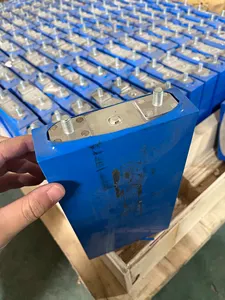Preventing and Managing Swollen LiFePO4 Batteries

Understanding Swollen LiFePO4 Batteries
Swelling in LiFePO4 batteries occurs due to excessive current within a battery cell, leading to a buildup of heat and gas. This issue can arise from overcharging, deep discharging, overheating, manufacturing defects, or environmental factors. In this article, we will explore the reasons behind this phenomenon and provide tips on prevention.
Recognizing LiFePO4 Battery Swelling
Swelling is a critical indicator of impending battery failure. LiFePO4 batteries can sometimes expand to twice their original size.
Causes of Swollen LiFePO4 Batteries
-
Overcharging:
- Overcharging causes all lithium atoms in the positive electrode to migrate to the negative electrode, depleting the positive electrode and leading to swelling.
-
Over-Discharge:
- Excessive discharge damages the passivation layer on the battery surface, harming the negative electrode material and causing swelling.
-
Production Issues:
- Uneven electrode layers and rough manufacturing processes can lead to swelling.
-
Long-term Idle:
- Extended periods of inactivity can cause swelling as air can conduct electricity, leading to a chronic short circuit.
Can Swollen LiFePO4 Batteries Be Replaced?
Swollen batteries can be replaced, but it depends on the situation. There are two types of deformation:
- Reversible Deformation: Caused by changes in the positive and negative materials, it occurs during the regular charge-discharge cycle.
- Irreversible Deformation: Resulting from gas generation due to abuse such as overcharging, over-discharging, or overheating.
If the battery experiences a short circuit or excess pressure, the safety valve discharges toxic gas to prevent accidents. Mildly swollen batteries might be compressed or rebalanced, but severely swollen batteries should be replaced as they pose significant danger.
Preventing Swollen LiFePO4 Batteries
-
Proper Usage:
- Avoid overcharging and ensure normal usage to prevent damage to the battery’s internal structure.
-
Regular Maintenance:
- Keep battery terminals clean to prevent oxidation, which can weaken battery performance.
-
Choose Reliable Brands:
- Opt for reputable brands from reliable suppliers to reduce the risk of swelling. Although brand-name batteries may be more expensive, they offer better performance and safety.
By following these guidelines, you can ensure the longevity and safety of your LiFePO4 batteries.
Edit by paco


